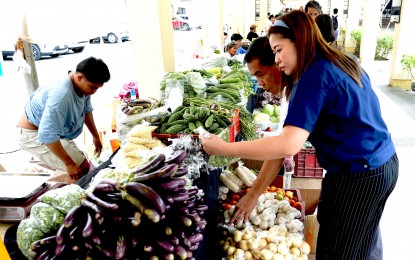The Department of Agriculture (DA) is plotting a bold initiative called “White Revolution” to ensure a stable and year-round supply of affordable vegetables and high-value crops.
“This is the essence of President Ferdinand R. Marcos Jr’s vision—a modern, climate-resilient, tech-powered agriculture sector that truly supports our farmers while ensuring food security for every Filipino,” Agriculture Secretary Francisco Tiu Laurel Jr. said in a statement on Sunday, September 21.
Tiu Laurel said the long-term strategy will complement traditional farming practices with protected cultivation systems, recognizing the need to meet the growing demand for food.
This will employ best management practices, adopt appropriate technologies, and strengthen social networks to ensure sustainability and scalability.
As part of the long-term agricultural transformation roadmap, the DA said it will establish new food corridors strategically located near urban markets.
These are expected to help mitigate price volatility and ease inflationary pressures caused by disruptions in the food supply chain.
“These zones will feature greenhouses, refrigerated storage, and improved post-harvest systems—allowing farmers to grow crops regardless of climate conditions, extend crops’ shelf life, and minimize spoilage,” the DA said.
Tiu Laurel said the DA mapped out the “White Revolution” following a series of storms and floods that resulted in substantial production losses and disrupted vegetable supply chains, pushing up prices.
“We cannot afford to rely on good weather anymore. Protected cultivation is no longer optional—it’s a necessity,” the agriculture chief said.
To kickstart the initiative, Agriculture Undersecretary Cheryl Marie Caballero has ordered an inventory of all existing greenhouses under previous DA programs to determine which facilities can be rehabilitated.
The “White Revolution” roadmap, according to the DA, takes inspiration from technologies used in South Korea to transform vegetable farming between the 1970s and 1990s, particularly the use of white plastic films in greenhouses, mulch, and tunnels.
Government data from the DA showed that the Philippines imported $461.8 million worth of processed vegetables, fruits, nuts, and other plant parts in 2024, slightly less than the previous year.
Despite the decrease, the DA said the country has remained a net food importer, with the overall agricultural trade deficit amounting to $11.71 billion.
The DA said reducing even 10 percent of the farm trade deficit could redirect at least P60 billion to local farmers.




